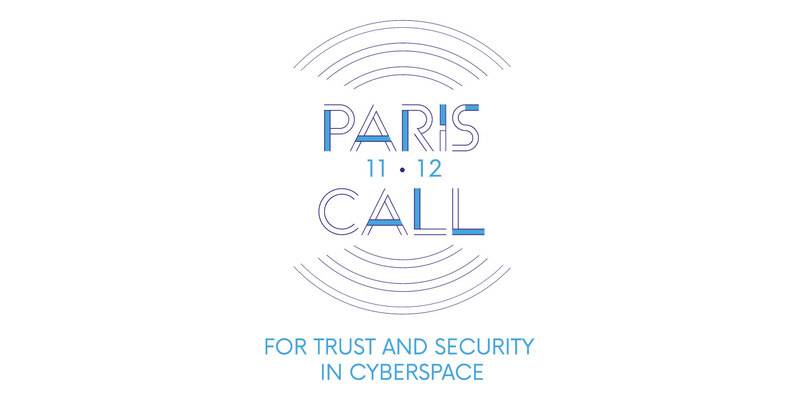The Cybersecurity Tech Accord is proud to reaffirm its support for the Paris Call for Trust and Security in Cyberspace on the first anniversary of the agreement this week, and thrilled to learn that its endorsements have more than tripled over the past year to include now more than 1,000 supporters. This is the type of broad, multi-stakeholder initiative that is needed to push back against major trends that threaten to undermine the integrity and security of our shared online world.
Over the past year alone we have been made aware of countless cyberattacks of ever-increasing sophistication that reaffirm the necessity of initiatives like the Paris Call. The attack against the Kudankulam Nuclear Power Plant in India, in October, is just the most recent example of the type of reckless behavior in cyberspace that cannot be tolerated any longer, with other recent examples including ransomware attacks against cities and accusations that nations are targeting one another’s power grids with malware.
Thankfully, however, the past year has also shown a renewed commitment to initiatives to counter these escalating threats, including the twin dialogues at the UN on norms and responsible behavior in cyberspace, which began deliberations this fall. In addition, the UN Secretary-General’s High-Level Panel on Digital Cooperation delivered in its report a mandate to pursue enduring commitments and structures to protect the stability and accessibility of cyberspace. Taken together, this moment in time presents an opportunity to turn the tide against the dangers of escalating tensions in cyberspace through collective action. And among these parallel efforts, the Paris Call sets itself apart as the multi-stakeholder catalyst for further progress, with principles that governments, industry and civil society alike can take part in upholding.
The Paris Call for Trust and Security in Cyberspace is based on nine foundational cybersecurity principles that every organization and government should be able to support. They include protections for the institutions and systems that people everywhere do and must rely on – such as critical infrastructure and electoral systems – but which have been jeopardized in recent years as nations have increasingly pursued and employed military capabilities in the fifth domain of conflict. Meanwhile, other Paris Call principles support taking steps to improve different aspects of cybersecurity, such as cyber hygiene, the integrity of ICT products and services, and implementing prohibitions on “hack-back” without compromising techniques used for defence, such as penetration testing.
We believe that in working on the latter, the industry has valuable insights and a leadership role to play. In fact, as important as the principles themselves are, equally important is the overarching commitment in the Paris Call that its supporters will work together, across sectors and geographies, to advance its principles to protect a safe and secure online world. To this end, the Cybersecurity Tech Accord looks forward to joining with other Paris Call supporters in the next year as part of the newly announced “Community of Interest” to support the recognition and implementation of the Paris Call principles by governments and organizations everywhere. We are particularly looking forward to contributing to the principles related to cyber hygiene and hack back as a group, and know that other signatories will take similar initiatives on other principles within their own capacities.
New Cybersecurity Tech Accord signatories
The Paris Call is not the only group announcing an expansion this week, the Cybersecurity Tech Accord is excited to be able to today announce 8 new signatories of its own. With the additions of 4 MFG, Big Cloud Consultants, CloudFactors LLC, LaSalle Consulting Partners, Madison Computer Works, Queue Associates, Safe PC Solutions, and wca technologies, there are now a total of 130 Cybersecurity Tech Accord signatories from across the globe committed to protecting users and customers everywhere from threats online. These new signatories bring more than just numbers to our effort, they bring valuable new perspectives and expertise, adding to the essential diversity of the Cybersecurity Tech Accord.
These new signatories will help amplify and build on the Cybersecurity Tech Accord’s initiatives, which include highlighting innovative solutions (see our case study series), building capacities (see our webinar series), and taking collective action (see our vulnerability disclosure commitment) to help protect users and customers everywhere. Beyond our own initiatives, the growth of the Cybersecurity Tech Accord will also help us continue to partner with others across sectors, in efforts like the Paris Call, to provide industry guidance where it is needed and support critical multi-stakeholder solutions to defend our shared cyberspace.

